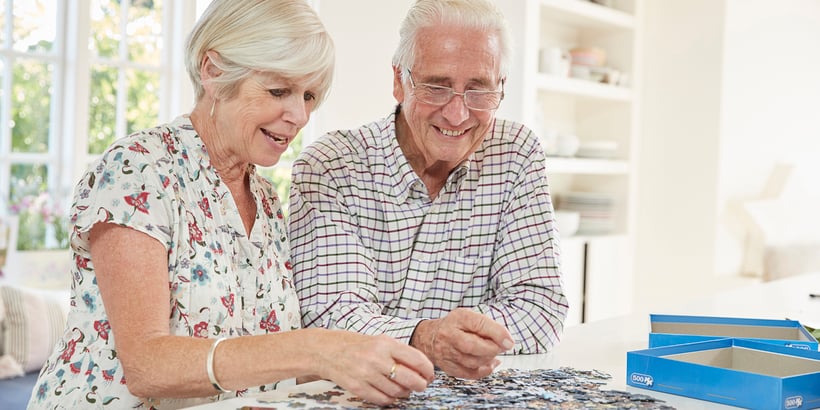 Does your mom tell you that she can’t do what her physical therapist asks her to try? Or perhaps your dad feels too tired to go on a walk with the grandkids. Do you hear them claim that they “feel old”?
Does your mom tell you that she can’t do what her physical therapist asks her to try? Or perhaps your dad feels too tired to go on a walk with the grandkids. Do you hear them claim that they “feel old”?
What Feeling Old Really Means
Age is but a number, and oldness is not a feeling. When someone says they “feel old,” think about what they might really be saying.
Maybe they are in some kind of pain or discomfort (think: standing up from the recliner hurts their knees or back). Perhaps they feel inferior or incompetent (think: watching a grandchild easily navigate Zoom). Generally, when we talk about feeling old, what we’re actually saying is that we feel sick, burdensome, curmudgeonly, demoralized, forgetful, feeble, or even lonely.
The problem with “feeling old” is that when your mindset about aging is negative, you’re more likely to experience physical deterioration than if you are hopeful and realistic about the process of growing older. On the other hand, if you believe your life has value and is worth investing in, you will be more likely to engage in preventive health behaviors, such as eating a balanced diet, exercising, and following directions for taking prescribed medications.
In a study conducted at Yale University, researchers asked 660 participants aged 50 and older to respond to agree or disagree with statements such as, “Things keep getting worse as I get older,” “I have as much pep as I did last year,” and “As you get older, you are less useful.” They found that older adults with positive self-perceptions of aging — those who see aging in terms of opportunity and growth — lived on average 7.5 years longer than those with less positive self-perceptions of aging.
If you’ve noticed changes in your parent’s mood, that they don’t participate in activities they once did, or they lack the motivation to get out of bed in the morning, encourage them to focus on what they want out of this next chapter of life.
How to Age Well
Many believe that muscle pain and stiffness are due to general old age and are just an inevitable part of the aging process, but this doesn’t have to be the case.
Here’s a look at five things that might be making your parent feel old and what you can do to help them achieve a more positive outlook on getting older.
We all know there’s value in living a healthy lifestyle, but sometimes being motivated to do so is the hardest part.
If you want to help your parents or an aging loved one live well in old age, you might be driving them to medical appointments, learning about their health conditions, or running to the pharmacy to pick up their prescriptions. While physical health plays an important role in wellness, there are actually eight dimensions of wellness that affect how your loved one feels.
This Wellness Quiz for Older Adults is a great way to gather the information that will get your loved one on the path to a happy and healthy life. Take the quiz with your loved one or with your loved one in mind to see where you can enhance your wellness.
Positive choices often lead to a healthier — and happier — you. Maintaining a healthy lifestyle can minimize the risk of developing a number of chronic diseases. Wellness assessments can provide a starting place and can serve as a map to guide you along your journey.






